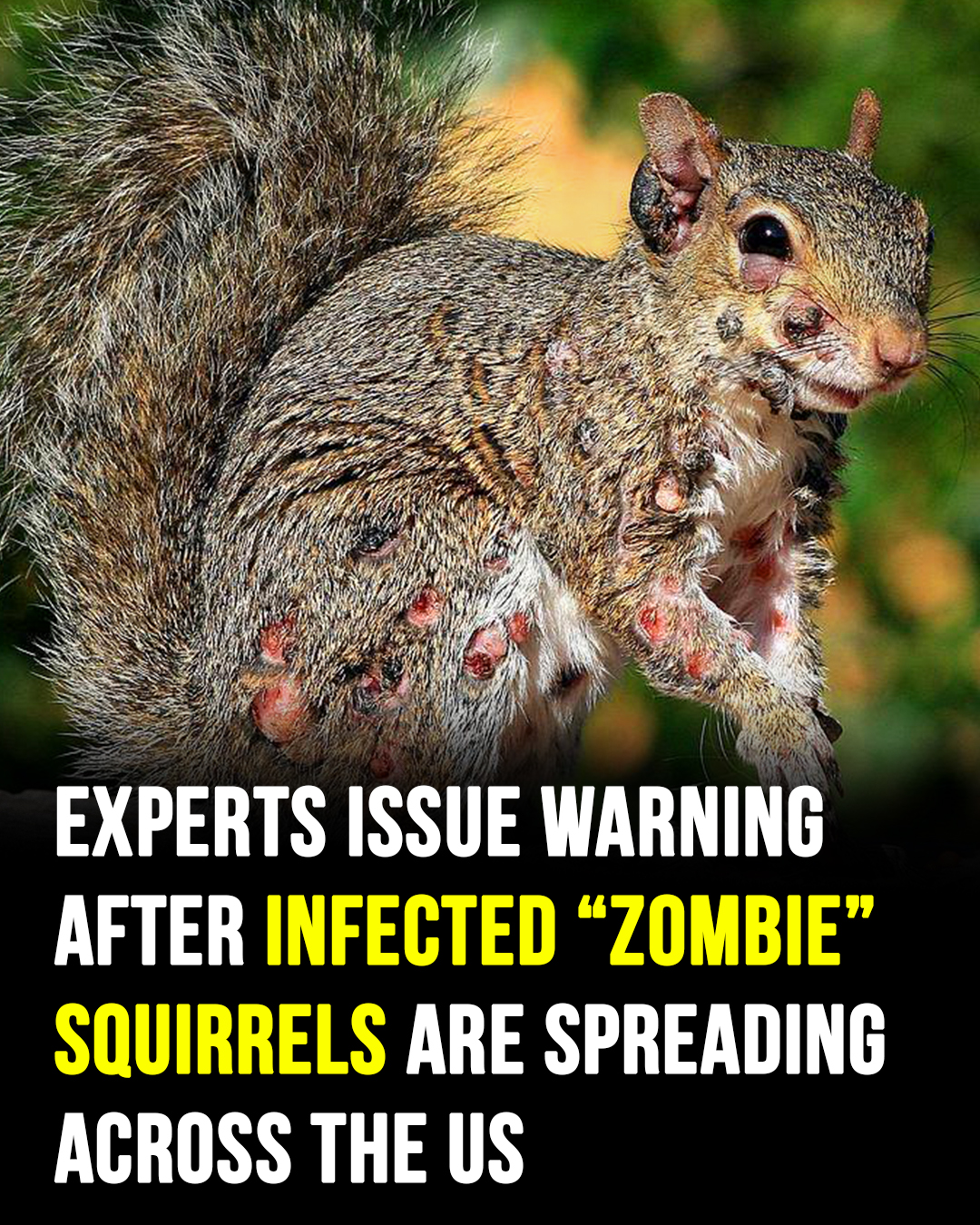Experts Confirm the Disease but Urge Caution
Sightings are not new. In 2023, Maine residents reported squirrels with oozing sores and scaly growths.
Wildlife biologist Shevenell Webb from the Maine Department of Inland Fisheries and Wildlife explained that the condition usually resolves itself over time, but she strongly warned the public to keep their distance:
“I would not recommend trying to capture a squirrel that has the virus. It is naturally occurring and will run its course in time.”
The disease spreads quickly when squirrels gather at feeders, often sharing saliva. Webb compared it to the way humans pass colds or flu in crowded spaces:
“It’s like when you get a large concentration of people. If someone is sick and it’s something that spreads easily, others are going to catch it.”
Despite their horrific appearance, most infected squirrels survive unless the fibromas grow large enough to interfere with vital functions like eating, breathing, or seeing.
“It’s nothing to really worry about,” Webb added. “For the most part, squirrels with squirrel pox are just really ugly to look at.”
Panic Over “Zombie Squirrels”
From Maine to Virginia, reports continue to surface.
At Evelyn’s Wildlife Refuge, staff members confirmed sightings of squirrels with strange lumps. In some cases, the disfigurements were not caused by squirrel pox at all but by botfly larvae tunneling under the skin.
Their warning was clear:
“Only skilled rehabbers or vets should attempt to extract bots.”
On social media, alarmed users quickly dubbed them “zombie squirrels.” One Twitter user wrote in exasperation: “Zombie squirrels?! Seriously?! FFS!!”
Others shared photos of eastern gray squirrels with their faces overtaken by growths. One asked: “Can grey squirrels survive squirrel pox? I see a few with early symptoms in my backyard.”
Some attempted humor in the face of horror. A Redditor captioned their photo simply: “Squirrel Pox, ladies and gentlemen. Thank God they’re only for squirrels.”
Risk to Pets and Humans?
Fortunately, experts emphasize that squirrel pox is species-specific. Humans, cats, and dogs are not at risk.
According to the North Carolina Wildlife Resources Commission, only in very rare cases have domestic rabbits been affected.
Transmission between squirrels is often carried by biting insects. The Wisconsin Department of Natural Resources described the illness as:
“Characterized by varying sizes and numbers of wart-like growths or fibromas on the skin of squirrels. Biting insects, such as mosquitoes, are likely the primary route of transmission between squirrels.”
CONTINUE READING ON THE NEXT PAGE 🥰💕

